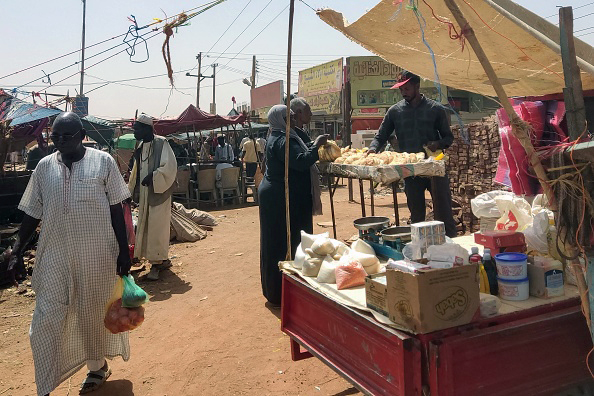
Sugar Disappearance... Life in Khartoum Without Sweetness
Ali Taha
In the ninth month of the war, reality here in Khartoum has given birth to a problem, attributed to the family of suffering: the "sugar crisis" is the newborn that has just joined the family of rare commodities. Sugar, unrelenting, has become the core of the new crisis, driven by peoples needs and challenging economic conditions. It has climbed to the top of the price list, with the price of one kilogram of sugar now reaching three thousand Sudanese pounds and subject to further increases. The prices have been fluctuating for the past three weeks, and the recent events in the neighboring Gezira state, which blocked trade routes and halted the flow of goods, have worsened the situation.
The sugar crisis and the disappearance of sugarcane from the markets of the eastern suburbs of the Nile east of the Sudanese capital, especially in Souq 6, Hilla Coco Market, Souq 24, and Souq Soba, have made peoples lives tasteless. This has increased the burdens of difficult living conditions. At the same time, it revealed the disgraceful behavior of profiteers and crisis merchants who withdrew the offered goods from the market before buying them. This was done with the intention of temporary hoarding, selling them at high prices that ordinary citizens cannot compete with or afford the value of a 50-kilogram bag for 130,000 Sudanese pounds.
Mohamed Abu Touila, a wholesale trader who owns a shop inside the Haj Youssef area, said, "I stopped selling sugar in the shop, which has become shelves with no goods, a dwelling for spiders. The goods are not expensive, but the purchasing power has weakened due to the migration of some citizens and the tight financial situation of the residents due to the economic hardships caused by the war that has affected our lives." Abu Touila added, "The expected rise in the price of sugar is due to the halt in supplies and the greed of wholesale merchants who seek profit only, showing no mercy even in times of war. Therefore, I stopped selling sugar so as not to contribute to the suffering of the oppressed citizens."
Abdulazim Ahmed, a retired employee who owns a small grocery store, believes that the story is not a sugar crisis but a crisis of conscience and moral collapse. He questions how a person can strip himself of his humanity in such a shameful manner. Everyone inside the market is looking for profit without mercy, even if it means exploiting human beings. Sugar is available, but the hoarding practices of these groups are deliberately hidden to raise prices, spread fear, and panic among ordinary citizens. Within the market, there are shameful practices and bad treatment; people here, like big fish, devour the small ones without mercy, and they all feed on the ordinary citizen.
As for Mohamed Al-Hafez, who closed his commercial stores inside Souq Sitta in Haj Youssef since the outbreak of the war about eight months ago, he said, "Hoarding practices in the market have become the norm among the majority of traders, especially brokers and intermediaries who discard their consciences to reap huge profits. The sugar crisis today is a natural result of the behavior of this group, and this behavior within the markets will not stop whether in war or in peacetime. They do not know humanity or mercy; they seek massive profits even above corpses." Hafez continued, "The market supply today has many problems, but due to peoples need for sugar in times of war, prices should be reasonable. Everyone should work to fight inflation instead of justifying unjustified price increases. It is not logical for the price of a kilogram of sugar to rise from 600 pounds to 3,000 pounds within one week. It is a sad matter, but God is kind to His servants."
Despite the war conditions that have disrupted factory machinery and halted the production of foodstuffs, markets in the East Nile region of the Sudanese capital Khartoum are witnessing active trade. Markets like Souq 24, Hilla Coco, next to Souq Sitta, provide services to the majority of residents at affordable prices, with some being surprisingly low. However, among the goods, there is a group with unstable prices, such as flour, oils, and, especially, sugar, the most sought-after commodity.

